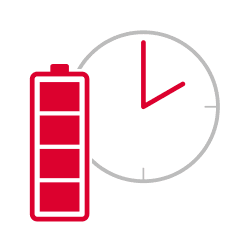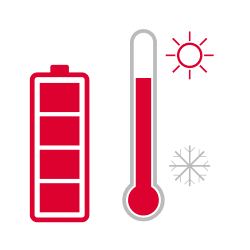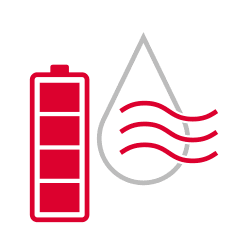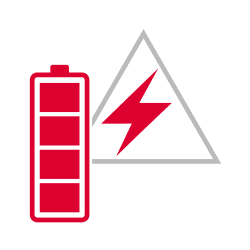UPS Battery Maintenance Tips
You are ready for a power outage. You have the right UPS (Uninterrupted Power Supply) system to provide a bridge of backup power for your equipment if the power goes out. The UPS system will guard against surges, keep you running during shorter outages, or allow for graceful shutdowns during longer ones.
So, nothing to worry about, right?
Yes, if your backup battery is young, healthy, and fully charged. While a UPS system acts as an insurance policy for your equipment, ensuring the battery is well maintained is critical to making sure your UPS system is ready when a power outage occurs. Of all the causes of UPS failures, half are due to battery failure.
What impacts battery life?

Time
Time is the most clear-cut guideline in determining if you should replace your battery. Most UPS batteries have an expected life of 3-5 years, but other factors can also shorten the life of the battery, such as temperature, humidity, and frequency of power events.

Temperature
Make sure your UPS unit is in a cool and dry location. If the batteries operate in an environment that is too hot or too cold, it can reduce their ability to store energy. Generally, for every 15°F average temperature above 77°F, the life of the battery is reduced by 50 percent. Leave at least 2 inches of space on each side of your UPS unit for proper airflow. The temperature recommendation from the manufacturer should be strictly followed.

Humidity
Heat and humidity often go hand in hand. Too much moisture can also affect battery life. In more controlled environments with consistent power, you can probably plan for closer to 5 years of battery life. Most UPS manufacturers will specify the maximum relative humidity of an environment safe for the UPS. Avoid installing a UPS near open windows or areas with high levels of moisture.

Frequency of Power Events
Power quality issues, such as voltage fluctuations, harmonic distortions, noise and power outages can cause the UPS to shut down and activate the backup battery. After a UPS operates on battery power during a power failure, the battery recharges for future use, an event known as the discharge cycle. Each discharge and subsequent recharge slightly reduces the capacity of the battery.
Always be Prepared
Periodic power evaluations can help determine if your battery is still able to switch to battery mode when a power event occurs, but the age and condition of the battery will affect how long the battery will last.
Review your power environment. For example, if you live in Florida and have a UPS exposed to higher heat, humidity, and power fluctuations due to active storm seasons, you probably should err on the safe side and replace your battery every three years. In more controlled environments with consistent power, you can probably wait five years for replacement.
Other battery tips
Register your UPS systems and keep purchase records. That way if your battery dies before the warranty expires, you can get a replacement battery from the UPS manufacturer. A certified replacement battery from the manufacturer will give you peace-of-mind that the battery is fully compatible with your UPS system and include a warranty.
If you have an existing UPS that has already had a battery change (meaning the UPS is getting on to 7-8+ years old) you may want to consider purchasing a new UPS system instead. A new UPS will have better efficiency, resulting in lower costs in the long run, plus peak surge protection, as well as enhanced features.
When a new battery is needed, CyberPower has your back with the right replacement battery.